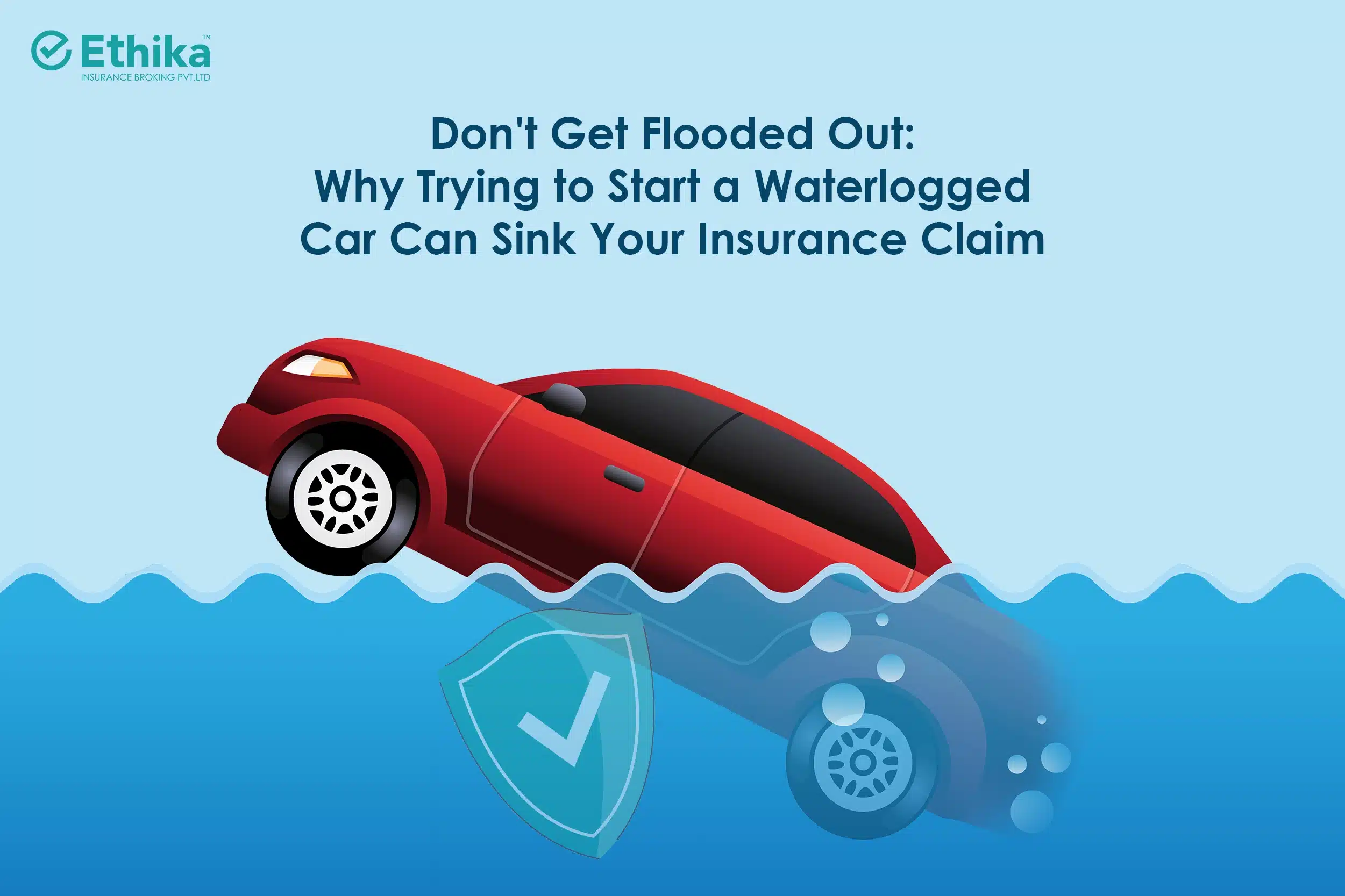
Finally, you think to yourself. God seems to have answered your prayers. Rains are here.
It has rained through the night. The next day, you get into your waterlogged car and try to start it.
Keech!!! The engine makes a screeching noise, but your car won’t start. You try a second time and your engine seems to have died on you.
You call the closest Garage. You are shocked to get an estimate for the repair. But, it is okay if you feel, your insurance policy will foot the damage.
But will it?
What’s on this page?
Why Starting a Waterlogged Car is a Recipe for Disaster?
Water and electronics don’t mix, and your car is a complex web of both. Attempting to start a water-logged engine can have disastrous consequences:
- Increased Damage: Turning the ignition can force water into critical components like the engine, gearbox, and electrical system, causing even more damage. This can significantly increase repair costs to the extent that it could be beyond repair.
- Proving Pre-Existing Damage Becomes a Nightmare: If you try to start the car and then discover extensive damage, proving what existed before and what was caused by your actions becomes a complex and time-consuming process. This can significantly delay claim settlement and cause unnecessary stress.
What to Do When Your Car Gets Flooded
Instead of reaching for the ignition, follow these crucial steps:
- Leave the car untouched. Resist the urge to start the engine. This is the single most important step to minimize further damage and potential claim complications.
- Contact your insurance company immediately. Inform them about the situation and follow their specific instructions. They might advise towing the car to an authorized service center or provide other valuable guidance.
- Document everything. Take photos and videos of the car’s condition, the surrounding water level, and any visible damage. This will be crucial evidence for your insurance claim.
By prioritizing safety and following the right procedures, you significantly increase your chances of a successful and hassle-free claim settlement. In the end, your car might be replaceable, but your safety and financial well-being are not. So, the next time you encounter a flooded situation, keep this advice in mind, and let the professionals handle the rest.
My car got flooded. Should I try to start it?
Absolutely not! Starting a waterlogged car is the worst thing you can do. It can force water into vital components, causing even more damage and potentially making repairs impossible. This will also make it difficult to prove pre-existing damage to your insurance company.
What should I do if my car is flooded?
– Leave the car untouched. Don’t even attempt to start the engine.
– Contact your insurance company immediately. Inform them about the situation and follow their instructions. They might advise towing or provide further guidance.
– Document everything. Take pictures and videos of the car’s condition, the water level, and any visible damage. This evidence is crucial for your insurance claim.Will my insurance cover flood damage to my car?
It depends. Comprehensive car insurance typically covers flood damage, but only if you haven’t driven through floodwaters. Standard car insurance policies usually don’t cover flood damage.
What if I already tried starting my car before contacting insurance?
This can make the claim process more complex and potentially lead to delays or even denials. However, be honest with your insurance company about your actions.
How can I prepare for potential flooding?
– Park your car on higher ground during heavy rains or flood warnings.
– Consider purchasing comprehensive car insurance, especially if you live in a flood-prone area.
– Keep your insurance company’s contact information readily available.